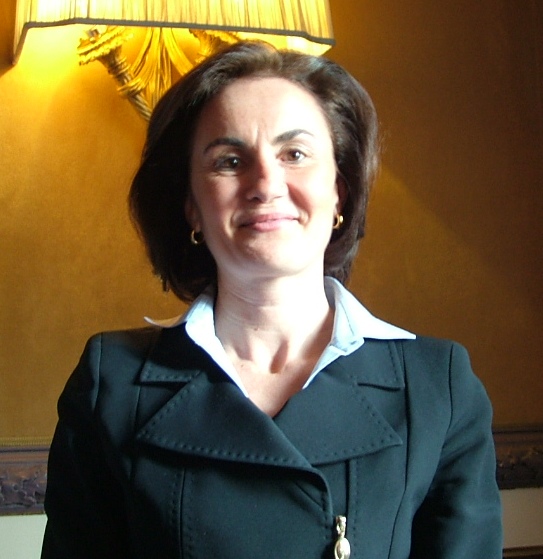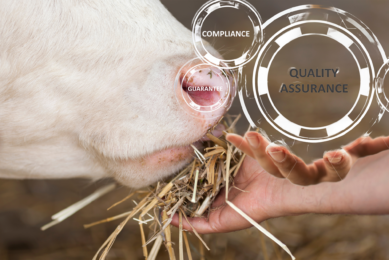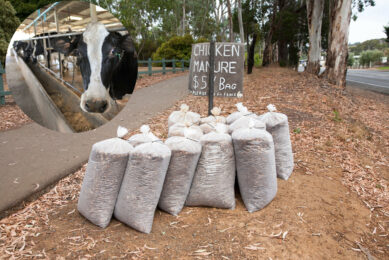EFSA director: ‘We are not there to please everybody’

Catherine Geslain-Lanéelle recently started her second five-year mandate as executive director of the European Food Safety Authority, better known as EFSA. Her main concern for the coming years is to maintain and improve the scientific expertise of EFSA in an environment of continuous pressure on feed and food safety budgets in member states.
Somewhat hidden away in Parma, Italy and outside the focal point of the international press the European Food Safety Authority, established in 2002, is the most important body for feed and food safety in the European Union. Since 1 July 2006 Catherine Geslain-Lanéelle has been appointed as executive director and this year she was mandated for another five year period. EFSA closely cooperates with national risk assessment bodies and as such Geslain-Lanéelle travels to the individual EU-member states to foster the cooperation between EFSA and national risk assessment bodies, laboratories and universities.
Zoonoses, diseases that can migrate from animals to humans, are a focal point in EFSA’s assignment. “Zoonoses represent an important issue in the food chain and have our full attention. We have contributed to a reduction in the food chain of for example Salmonella outbreaks,” Geslain-Lanéelle says. Annually 300,000 cases are reported in the EU. EFSA is pivotal in data collection on Salmonella incidences, setting targets and monitoring progress, she explains. The program is successful; latest known data show a reduction in Salmonella cases from 2008 to 2009 in the EU of -17% and of -26% in the Netherlands, being the most successful member state.Another focus of concern is antibiotic resistance. “We have invested a lot of effort in monitoring and looking at options to reduce the use of antibiotics. But the food chain can also contribute to antibiotic reduction,” Geslain-Lanéelle says. EFSA and the European Centre for Disease prevention and Control (ECDC) compiled and just released their first joint report on antimicrobial resistance in zoonotic bacteria affecting humans, animals and food. High levels of resistance to antimicrobials were found in animals for Salmonella and non-disease-causing E. coli whereas for Campylobacter high levels were reported in both animals and humans. The report makes an important contribution to work being carried out at European level and assists the European Commission as it develops its proposals for action to fight antimicrobial resistance.
A number of risk management measures to combat antimicrobial resistance are in place related to the food chain. The EU legislation on zoonoses obliges member states to monitor trends in antimicrobial resistance in zoonoses and other agents that may present a threat to public health. At international level, countries cooperate through an Intergovernmental Task Force on Antimicrobial Resistance which reports to the Codex Alimentarius Commission. The EU and United States have also created a transatlantic task force on antimicrobial resistance issues.
Health claims
With the reduced antibiotic use in the EU many new products emerge to compensate for loss of performance, or to improve health of animals and humans. “We received around 3,000 requests for a health claim on a product,” Geslain-Lanéelle says. “Eighty percent of these claims are rejected, mostly because of incomplete dossiers.”
However, EFSA’s opinion on botanicals is not complete yet. Some 1,500 requests are put on hold. This group of ingredients is difficult to place. Sometimes there are inconsistencies between the health claim on the one side and medical use of the product on the other side.
Many studies are required to support a claim. What is the product? In probiotics for example, what is the actual microbial used? What are the benefits? What is the cause-effect relation? For 200 to 300 probiotics companies have to come back with better scientific backgrounds. With such a decision EFSA is seen as an obstacle for market access. “We are not there to please people and companies, we are there to do our job and make foods safer,” Geslain-Lanéelle parries criticism on the perceived slow moving of EFSA.
In 2008 EFSA received 4,500 claims on products, while it was said at the beginning it would only be around 1,500. That is why extra regulations were put in place. Also eight new scientific panels have been installed, which require many scientists. According to Geslain-Lanéelle EFSA is still able to attract good scientific staff. Half of the staff comes from national food agencies. The current economic crisis puts extra pressure on national budgets and thus could give problems in carrying out EFSA’s tasks. “Up until now our budget is still safe and even increases a little next year. In the case of national budget cuts scientists could rely a bit more on our staff for processing the applications and focus nationally on the more difficult stuff. This could also make the work for the panels more attractive,” Geslain-Lanéelle says. “This evolution in work process could help efficiency since in Parma more than 60% of staff have a PhD degree and are well qualified to process applications.”
Pay for processing
Around 40% of the EFSA budget of about €17 million is allocated to dossier applications. For the future the commission is considering a system of fees for submitting dossiers. “This would free us to allocate money to other issues that the industry is not willing to pay for,” Geslain-Lanéelle says. Although she is not able to mention any amount, Geslain-Lanéelle is not afraid that such a fee would withhold smaller operations to submit dossiers as it would become too costly for them. “If you consider that the cost for EFSA for a risk assessment for a GMO is more than €300,000, such an ‘entry’ fee would not be an obstacle for not submitting a dossier. A fee could also contribute to the efficiency of dossier processing. A company will better prepare itself before submitting a file.”
A key point in the future of EFSA is the continuous work on “building credibility and scientific excellence and optimising our risk assessment capacity,” Geslain-Lanéelle says. “We need to work closer with national organisations to avoid duplications of work. Furthermore we are continuing to improve our risk assessment methodology.” The main concern is also building and maintaining scientific expertise in the member states. There is some worry due to possible budget constraints. “If national budgets are weakened, we are in trouble,” Geslain-Lanéelle says.
Independence
Because of the close cooperation between EFSA and national bodies and institutes, the organisation is sometimes criticised for its independence, which is even discussed in national parliaments. Critics say that the organisation would rely too much on industry data, would require too much data and, where there is more and more private funding of research, conflicts of interest might occur when using external expertise. Geslain-Lanéelle deflects this criticism. “We have built-in safeguards to avoid external influences other than science. The advice we give is always a collective advice and not the opinion of one expert. We select experts using set criteria to avoid a biased opinion. Also the opinion of one expert is checked by more than 20 of its panellists.”
Last year in 300 occasions scientists were partially or totally excluded from assessing a particular product because of a possible conflict of interest. This all was done to avoid bias Geslain-Lanéelle explains. “Annually we screen 5,000 declarations of interest. In four occasions experts resigned from a panel because they forgot to declare a possible conflict of interest.” Just as allowing people from the industry in a panel is not a good idea the suggestion to include representatives of non-governmental organisations is not welcomed. “With NGOs you don’t always understand what their real interest is, which is for example the case in the GMO debate,” Geslain-Lanéelle says. “Science is the basis for EFSA’s decisions and that may not always give an answer that everybody is happy with.” AAF
Food crisis lead to EFSA In the European food safety system, risk assessment is done independently from risk management. As the risk assessor, EFSA produces scientific opinions and advice to provide a sound foundation for European policies and legislation and to support the European Commission, European Parliament and EU Member States in taking effective and timely risk management decisions. EFSA’s remit covers food and feed safety, nutrition, animal health and welfare, plant protection and plant health. In all these fields, EFSA’s most critical commitment is to provide objective and independent science-based advice and clear communication grounded in the most up-to-date scientific information and knowledge. The organisation’s goal is to become globally recognised as the European reference body for risk assessment on food and feed safety, animal health and welfare, nutrition, plant protection and plant health. |











